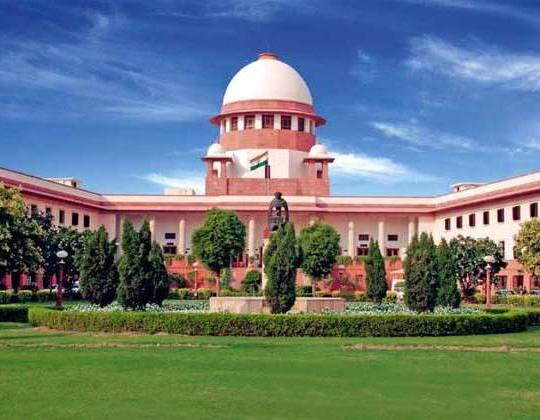India: Call to End Imposition of Death Penalty
BRICS, 8 Jun 2015
Asian Centre for Human Rights – TRANSCEND Media Service
2 June 2015 – Report released today called for an end to imposition of death penalty by majority view of the judges of the High Courts and the Supreme Court of India.
“The ratio of differences of opinion among the judges whether somebody convicted for offences punishable with death should die or live in most cases in India is 2:1. When this difference of opinion is also between acquittal and death sentence, imposition of death penalty by majority opinion becomes legally untenable and morally unconscionable.” – stated Mr Suhas Chakma, Coordinator of the National Campaign for Abolition of Death Penalty India.
Citing specific cases of imposition of death penalty by majority view in India and the experiences of the United States, the report stated that a study in the US in 2005 had shown that if there is no unanimity for imposition of death penalty, in 20 states of the United States, courts must impose a lesser penalty when the jury cannot agree on whether to impose the death penalty, in four states the jury can continue to deliberate on penalties other than the death penalty before the court imposes a sentence, in one State the judge has the option of imposing a sentence of life imprisonment without parole or impaneling a new jury, and in two states, statutes authorise the court to impanel a new jury if the first jury cannot reach a verdict.
In India, the “differences of opinion at the level of High Court” is recognised as a ground for commutation of death sentences under the broad guidelines on consideration of mercy pleas adopted by the Ministry of Home Affairs (MHA), Government of India. However, the MHA regularly flouts its own guidelines including on ‘the differences of opinion at the level of High Court’ while advising the President of India for rejection of mercy pleas.
With the aim to reduce imposition of death penalty, Asian Centre for Human Rights called for an end to imposition of death penalty without unanimity of the judges in all stages of the proceedings of a case and further urged the President of India to automatically grant mercy if there are differences of opinion at any stage of the proceedings, and not only at the level of the High Court.
DOWNLOAD FULL REPORT pdf. India: Death despite dissenting judgements
________________________________
ACHR has Special Consultative Status with the UN ECOSOC. New Delhi, India Email: suhaschakma@achrweb.org
DISCLAIMER: The statements, views and opinions expressed in pieces republished here are solely those of the authors and do not necessarily represent those of TMS. In accordance with title 17 U.S.C. section 107, this material is distributed without profit to those who have expressed a prior interest in receiving the included information for research and educational purposes. TMS has no affiliation whatsoever with the originator of this article nor is TMS endorsed or sponsored by the originator. “GO TO ORIGINAL” links are provided as a convenience to our readers and allow for verification of authenticity. However, as originating pages are often updated by their originating host sites, the versions posted may not match the versions our readers view when clicking the “GO TO ORIGINAL” links. This site contains copyrighted material the use of which has not always been specifically authorized by the copyright owner. We are making such material available in our efforts to advance understanding of environmental, political, human rights, economic, democracy, scientific, and social justice issues, etc. We believe this constitutes a ‘fair use’ of any such copyrighted material as provided for in section 107 of the US Copyright Law. In accordance with Title 17 U.S.C. Section 107, the material on this site is distributed without profit to those who have expressed a prior interest in receiving the included information for research and educational purposes. For more information go to: http://www.law.cornell.edu/uscode/17/107.shtml. If you wish to use copyrighted material from this site for purposes of your own that go beyond ‘fair use’, you must obtain permission from the copyright owner.
